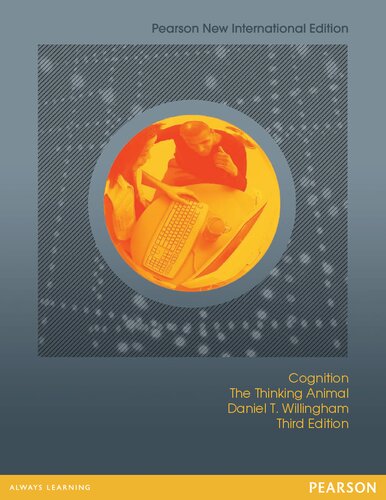

Most ebook files are in PDF format, so you can easily read them using various software such as Foxit Reader or directly on the Google Chrome browser.
Some ebook files are released by publishers in other formats such as .awz, .mobi, .epub, .fb2, etc. You may need to install specific software to read these formats on mobile/PC, such as Calibre.
Please read the tutorial at this link: https://ebookbell.com/faq
We offer FREE conversion to the popular formats you request; however, this may take some time. Therefore, right after payment, please email us, and we will try to provide the service as quickly as possible.
For some exceptional file formats or broken links (if any), please refrain from opening any disputes. Instead, email us first, and we will try to assist within a maximum of 6 hours.
EbookBell Team

0.0
0 reviewsFor undergraduate courses of beginning graduate courses in Introductory Cognitive Psychology.
Using a unique question-and-answer format, this text comprehensively addresses many of the overarching questions that confront and motivate today's cognitive scientists.
When Daniel Willingham first approached the prospect of creating his own cognitive psychology text, he did so with the knowledge that his years of teaching experience had brought him: while many texts were relatively adequate in coverage, his students never liked them. Usually underexposed to social sciences in pre-college courses, he found his students often struggled with understanding how and why cognitive psychologists approach the problems that they do. Here, by using a unique question-and-answer format, he is able to start with questions frequently asked by students, relate those to questions cognitive scientists ask in their own research, present clear answers, and frame those answers in an interesting, lively, and comprehensive coverage of the core material. Through this accessible narrative style, Willingham shows the logical connections between each section and, by means of several new pedagogical features, encourages students to apply what they have learned in their daily lives.